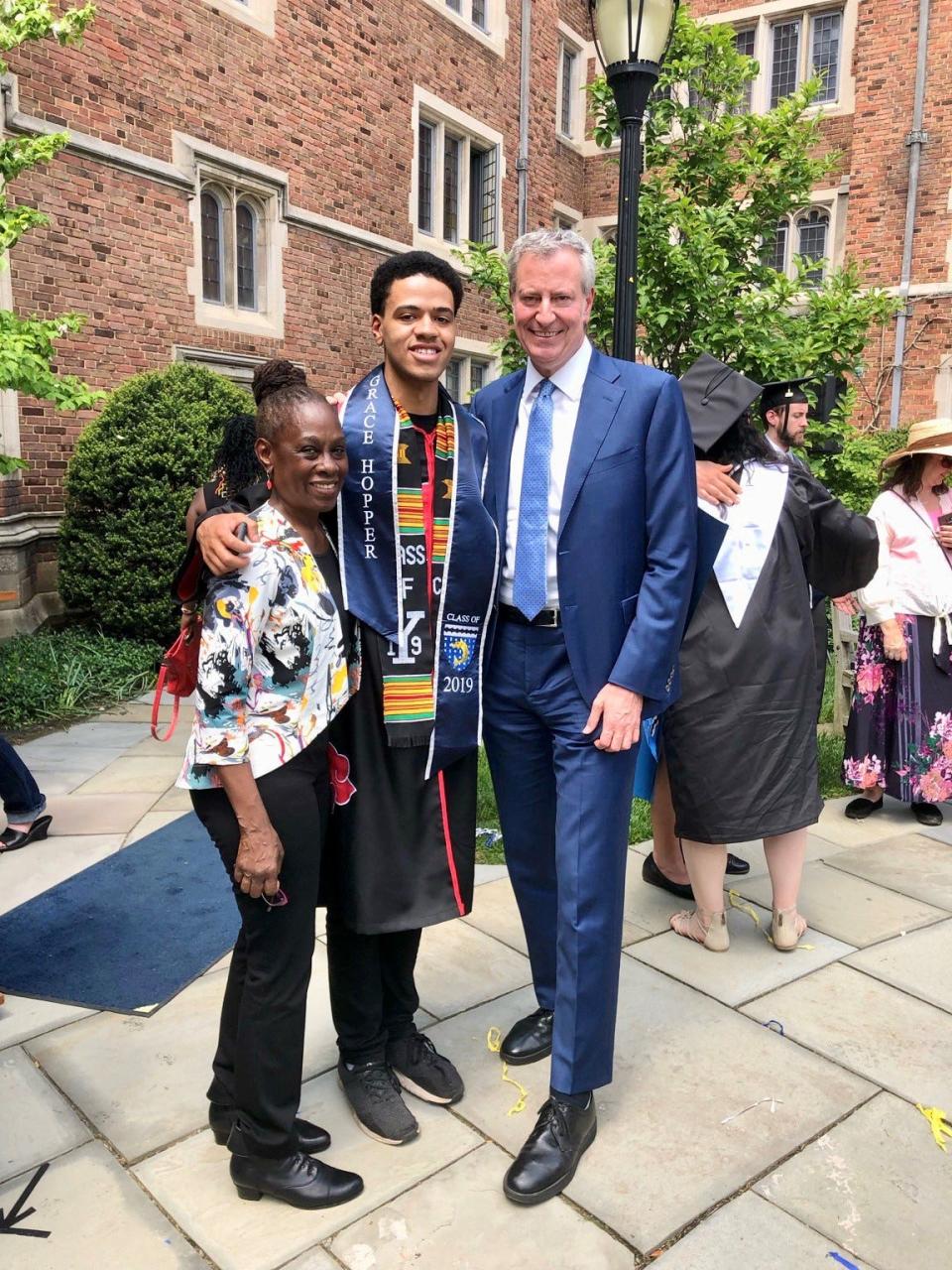Dante de Blasio: My dad gave me 'the talk.' When someone called police, I felt the fear.

Last week on the debate stage, my dad mentioned the time we had "the talk" about how to interact with police. The following story is familiar to many people of color, yet rarely heard in the political arena.
When I was in eighth grade, my family and I went to Atlanta to visit some of my mother’s relatives. Toward the end of the trip, my white father and two of my black cousins sat me down for a serious talk. They told me I was getting older and they needed to make sure that I knew how to talk to the police. They ran through what they thought were the most important things:
►How to address police officers. Be extra polite and deliberate with your words. Don’t try to be funny or casual.
►What to avoid — sudden movements, back talking, reaching for anything, even your wallet, without telling the officer what you’re about to do.
►What the consequences of a small mistake could be — getting arrested or maybe even shot.
Even at 13, I knew what could happen to me
They kept stressing these possible consequences, worried that a 13-year-old wouldn’t understand. I remember them awkwardly looking at each other, searching for the best way to convey the gravity of the situation, until I spoke up and said, “You don’t need to keep telling me. I know what can happen.” Even then, not long after the murder of Trayvon Martin but still years before the deaths of Eric Garner and so many others, I had heard the stories enough times.

When I was 18, I went to visit my sister in San Jose during my spring break. I knew a few people in San Francisco, so I decided to visit them after spending a few days with her. I got off the Caltrain about 11 p.m. and decided to walk.
No good news coming: Standards for police are low enough. Supreme Court must stand against police retaliation.
I eventually found myself walking through a neighborhood called the Tenderloin. All the storefront windows had bars on them, there was a man on one street yelling at passersby, trying to goad them into a fight, and homeless people were openly doing hard drugs on the sidewalk. But honestly, I wasn’t that scared. I was from Brooklyn, and I truly believed that I knew how to carry myself well enough not to be messed with. And due to the sheer force of my confidence, nobody messed with me (it also probably doesn’t hurt to be 6’3”).
In fact, the only time I felt fear during that entire night was at the very end of the walk, as I stared hopelessly at the keypad outside my family friend’s apartment building. My hosts had texted me the code so that I could let myself in, but there were no instructions, so I was just standing there with my suitcase and randomly pressing different buttons.
No fear on a night walk until the police came
I still wasn’t worried about being bothered in this neighborhood, even at 1 a.m. It was very quiet, and I hadn’t seen anybody on the streets. It was also obvious that this was an affluent neighborhood, with luxury cars in the driveways and spacious balconies for the apartments. I kept trying the code, getting increasingly hopeless about my chances of getting in without waking up my kind family friend.
I had been standing outside the apartment for about 10 minutes when a police cruiser slowly rolled down the empty block. I figured it must be heading somewhere else, but no, it pulled over right in front of me. For years, I had been aware of the fear I caused as a young black man — I had seen people cross the street to avoid me, I had been followed around stores — yet I could still hardly believe someone thought that I was trying to break into a home. But the truth was obvious: Somebody had called the police on me.
Why weren't whites arrested? Black female senator: My arrest shows the bias that still exists in justice system
I knew I had to get into the apartment. I turned back to the door and I suddenly realized that I hadn’t been hitting the pound key. I frantically, and correctly, typed in the door code so fast that the cops didn’t even have a chance to step out of the car to question me. My fear in that moment meant that I wasn’t even going to give them the chance.
That fear I felt is not unique. That lecture I got from my father and cousins has been given to countless young black people. We're taught to fear the people meant to protect us, because the absolute worst-case scenario has happened too many times. This reality cannot continue.
We shouldn’t need to feel that fear.
Dante de Blasio, 21, is a recent graduate of Yale University. Follow him on Twitter: @dante_deblasio
You can read diverse opinions from our Board of Contributors and other writers on the Opinion front page, on Twitter @usatodayopinion and in our daily Opinion newsletter. To respond to a column, submit a comment to letters@usatoday.com.
This article originally appeared on USA TODAY: Dante de Blasio: My dad gave me 'the talk.' When someone called police, I felt the fear.

